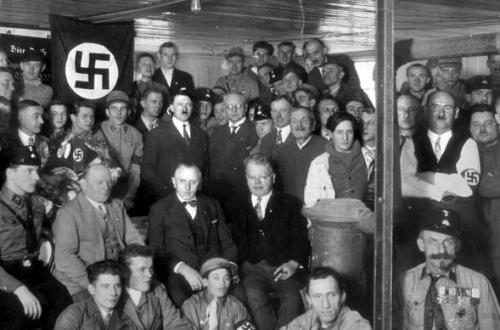A proposal sent to the Exeter University conference on Settler Colonialism in Palestine, 2-4 October 2015 *
Professor Alan Johnson
This paper critically examines the three strengths, at once analytical and political, claimed for the concept of ‘Zionist settler colonialism’: that it undermines the supposed uniqueness of the Zionist project, instead identifying its ‘white settler trajectory’ as shared with other examples of settler colonialism; that it refuses to take seriously the intentions of the settlers, instead focusing on the determining structure and iron logic of ‘invasion’; and that it overthrows the ‘dual society paradigm’, instead reading the settler-indigenous relationship as a simple and flat opposition, understood as structurally exploitative, even genocidal, and, crucially, as defining once and for all ‘who the settlers collectively are’ (Piterburg:2008).
Each analytical and political strength claimed for the concept is then read as the source of its several analytical weaknesses and its political reactionary cast.
Analytically weak
Erasing historical specificity, treating the Zionist experience as another case of ‘white settlers from Europe’, the concept of Zionist settler colonialism enacts a series of disabling reductions and erasures and crude explanatory dualisms that distort an understanding of: the particular Jewish relationship to the land, utterly unlike any settler colonialists; the sheer material weight of European history as a driver, in the form of the collapse of the post-1789 liberal and emancipatory society and the Enlightenment conception of the nation, and with it the radicalisation of European antisemitism that caused Europe to ‘vomit up its Jews’ (Sternhell); the local character of about half of Israeli Jews; Arabs moving within a region they had lived in for millennia, and, note, under the boot themselves; the international community mandate to nurture a new Jewish state (as was happening for Arab peoples at the same time in the same region); the plurality of historical Zionist subjectivities, the ZSC paradigm routinely cherry-picking and quote-mining and framing individual Zionists until only a ‘typical settler consciousness and imagination’ remains (Piterburg); of the achievement of what Penslar calls ‘Zionist nativeness… no less durable for its atypicality, or for its recent vintage’; and of the agency and moral responsibility of every actor other than the Jews.
ZSC erases the complexity of a concrete historical process, until the contingent and contradictory history of the Zionist movement is read through a lens provided by its purported ‘genocidal’ realization, the present being read as the inevitable expression of an essential sinful founding moment. ‘Zionism’, within ZSC, is an expressive and simple totality, and ‘Israel’ its natural, inevitable and vile epiphenomenal form. In toto, these reductions and erasures define the application of the paradigm of settler colonialism to Israel as an example of what Derek Penslar has called counter-myth: ‘a new form of mythology, this time adversarial rather than apologetic.’
Politically reactionary
The paper suggests that the concept of ZSC therefore carries a politically despairing, even reactionary charge. There is a politically impotent quality to the paradigm; Zionists are Zionists are Zionists; homogenised and without difference or development, contradiction or conflict; Israel is definitionally racist and incapable of reform; its legitimacy refused, its right to exist denied. However, after the Holocaust and after the establishment of the State of Israel and a Jewish homeland on the banks of the Mediterranean, the political meaning of that refusal and that denial is utterly transformed; what was once an internationalist and assimilationist ideology of general progress has now become a unique, and uniquely reactionary, demand for the end – forcible if needs be – of one single nation-state in the world.
The paper ends by briefly delineating an alternative theoretical and political project, drawing on the resources of the anti-Stalinist and radical liberal traditions (the late Trotsky, Isaac Deutscher, Sean Matgamna, Enzo Traverso, David Hirsh and Zeev Sternhell). It is willing to face up to the way history went, to give up the illusions of youth, as Trotsky put it, and support the Jews right to survival as a nation and as a ‘compact mass’ (Trotsky again). It foregrounds the tragic quality of the two peoples’ history, and in so doing transcends the explanatory dualisms on which ZSC rests. It strives in both theoretical analysis and political programme to mine the democratic resources to – in Hirsh’s words – ‘forge a just peace,’ to ‘defeat racist currents on both sides’, to transcend a bloody history by finding ‘a political orientation that could transcend both nationalisms.’ (Hirsh 2007)
* This conference paper proposal was rejected as it arrived after the deadline. So I thought I would share the abstract here, as it contains the basic argument.


